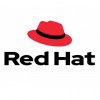Advanced Partitioning
Key Highlights of RHEL 9.6:
Installer and Image Creation:
- Advanced Partitioning: RHEL image builder now supports creating disk images with advanced partitioning layouts, allowing for custom mount points, LVM-based partitions, and LVM-based SWAP.
- Kickstart for CA Certificates: Added Kickstart support for CA certificates to enable encrypted DNS configuration during installation, simplifying setup for Zero Trust Architectures.
- Remote Desktop Protocol (RDP): RDP for graphical remote access replaces VNC in the installer.
- Bootc Image Builder: The bootc-image-builder tool is now generally available, allowing you to easily create and deploy compatible disk images from bootc container inputs.
Security:
- sudo RHEL System Role: A new sudo RHEL system role enables consistent management of sudo configuration at scale.
- OpenSSL 3.2 Update: The OpenSSL TLS toolkit is upgraded to version 3.2, with support for certificate compression extension (RFC 8879) and Brainpool curves in TLS 1.3 (RFC 8734).
- Trusted CA Roots: The ca-certificates program now provides trusted CA roots in the OpenSSL directory format.
- SELinux Policy: A new SELinux boolean allows QEMU Guest Agent to execute confined commands.
Kernel:
- Stability and Performance: This release includes updates to kernel stability, performance, and features.
- eBPF Update: The eBPF facility has been updated to align with Linux kernel version 6.12.
- TPM_TIS Rebase: TPM_TIS has been rebased to upstream 6.7 for enhanced Lenovo hardware support.
- kdump Updates: kdump is rebased to version 6.10, and NVMf-FC kdump now supports the IBM Power system for running kexec-tools.
Dynamic Programming Languages, Web and Database Servers:
Updates to various programming languages, web servers, and database servers. Notably, the maven-openjdk21 package is now available, enabling seamless execution of Maven with OpenJDK 21.
Compilers and Development Tools:
Updated system toolchain, performance tools, debuggers, and compiler toolsets (e.g., GCC Toolset 14, LLVM Toolset 18.1.8, Rust Toolset 1.79.0, Go Toolset 1.22).
Red Hat Enterprise Linux System Roles:
ha_cluster Role: You can now use the ha_cluster RHEL system role to export Corosync configurations for easy re-creation of clusters.
podman Role: The podman RHEL system role allows managing Podman quadlet units of type Pod.
In-Place Upgrade:
- Issues with upgrading ARM machines to RHEL 9.4 have been fixed, enabling upgrades from RHEL 8.10 to RHEL 9.4 and RHEL 9.6.
- Resource limitations are automatically adjusted during leapp utility execution to prevent errors.
- Support for in-place upgrades on systems using Red Hat Update Infrastructure (RHUI) has been introduced.


